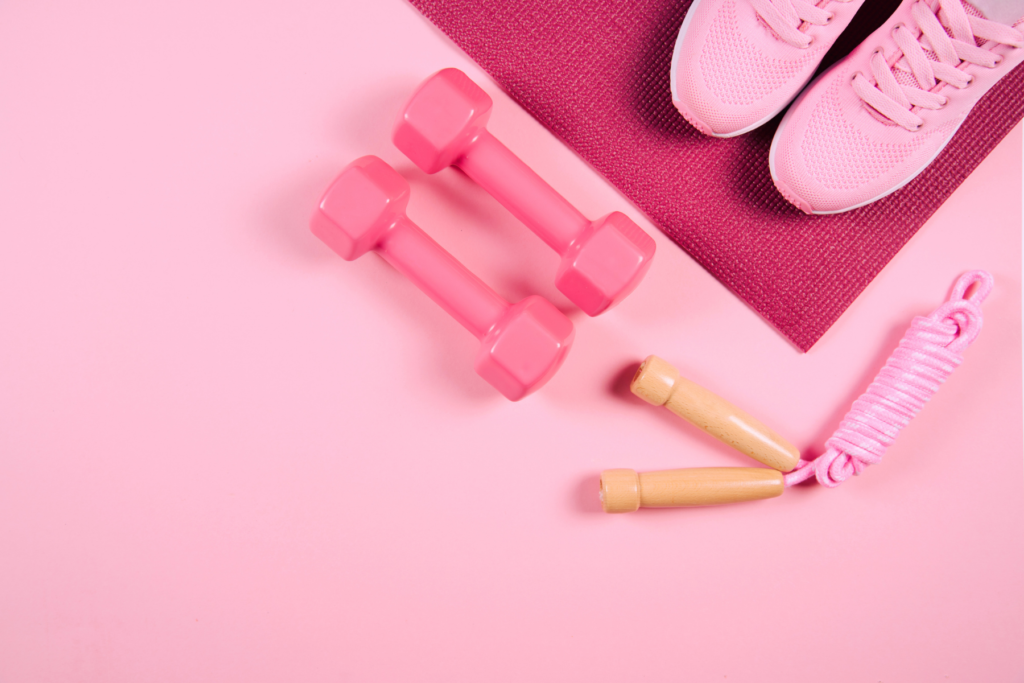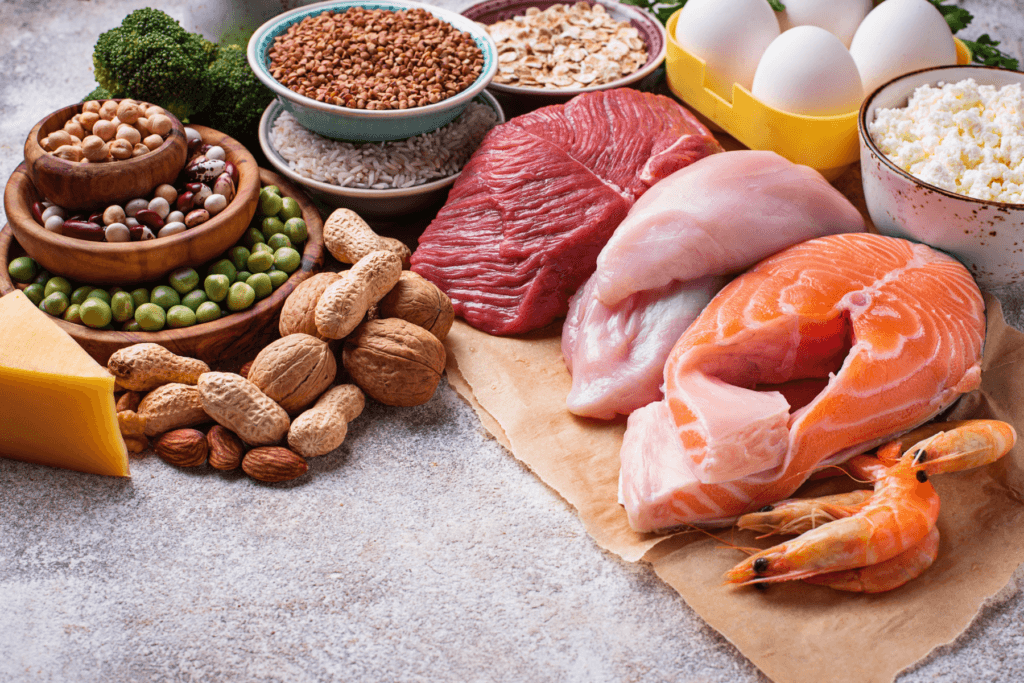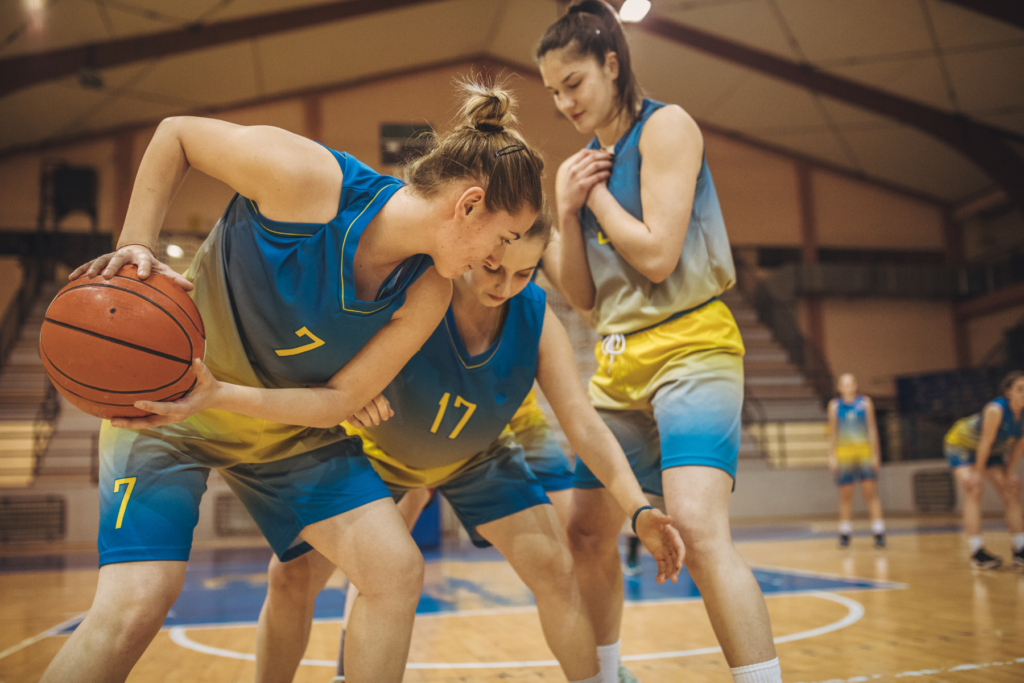5 Nutrition Tips for Active Women
June 6, 2022

With all of the sports nutrition information out there, things can start to get overwhelming. Not to mention, we are constantly told to be on the lookout for diet culture and misinformation. How are we supposed to know what to do, what to eat, and what information to trust?
Today, let’s take it back to the basics with five sports nutrition tips for active women from a registered dietitian.
1. Normalize Eating All Carbs
Carbohydrates. A macronutrient deemed to be “unhealthy” over and over again. However, our body prefers carbs for fueling physical activity and many body functions. Carbs are essential and we need at least 130g of carbs each day to just fuel our brains.
With this in mind, it makes sense that cutting carbs may impact focus, memory, digestion, hormones, and athletic performance. The more active you are, the more carbs your body will use and thus the more carbs you need to eat to replenish glycogen stores.
Including a source of carbs at meals and snacks can help you to meet your needs. Some carb sources like fruits, veg, beans, and whole grains can sometimes have more fibre, vitamins, and minerals. However, simple carbs like those in sports drinks replenish glycogen stores just as well and may be more convenient at times such as before and after workouts.
2. Pair With Protein
Protein is important for energy as well as helping the muscles repair and recover after exercise. Active women need more protein than sedentary individuals for these reasons. Although high-protein diets are all the rage, research shows that there are no benefits to eating more than 20-25g of protein at a time.
Protein is definitely an essential piece to sports nutrition. To get the most benefit, we recommend spreading out your protein intake by having 10-25g at least 3-4 times a day.

3. Sandwich Your Workouts With Fuel
Pre- and post-workout fuel should be a part of your nutrition strategy as an active individual. Pre-workout fuel can help provide you with the energy to power through that last set of curls or that last few minutes of your run. Post-workout fuel, on the other hand, helps to replenish glycogen stores and support muscle growth and recovery.
Recommendations suggest having carbs and a small amount of protein before workouts like a granola bar, toast with peanut butter, or fruit. After workouts, aim to have carbs and a larger portion of protein within 45 mins to support recovery. Post-workout snacks could look like a protein smoothie, chocolate milk, or a protein bar.
Check out our other post on What to Eat Before and After a Workout for more ideas.
4. Focus on Fruits and Veggies…But Not Too Much
Fruits and vegetables are amazing sources of healthy fibre, vitamins, minerals, and even water. They also contain high levels of antioxidants that can counteract the stress on the body that comes from exercising.
However, focusing too much on fruits and vegetables as an athlete may not be in your best interest. Surprising right? Fruits and vegetables are very low in calories and are very filling. As an athlete, filling up on these foods can easily lead to under-eating calories, carbs, fats, and protein. As a result, your health and performance may be hindered. Instead, aim for balanced meals and snacks that pair fruit and/or veg with a source of starchy carbs, fat, and protein.
5. Listen to Your Body But Also Your Nutrition Needs
Intuitive eating and listening to your body is a great way to form a healthy relationship with food and your body. As an athlete, exercise and stress can impact hunger cues and lead to accidental underfueling if you don’t also pay attention to your needs.
Sometimes athletes may need to eat when they are not hungry in order to avoid low energy availability and the complications that can come along with underfueling. Ensuring to eat enough during the day and to always eat before and after workouts is key to getting adequate nutrition and fuel. As an athlete, you should honour your hunger and fullness cues and cravings, but also be aware of and honour your needs as well.

In Conclusion…
Sports nutrition can be confusing, but we want to make it simple for you. These five tips are a great starting point to ensure you are fueling your body for performance, recovery, and health.
If you are looking for more individualized support when it comes to sports nutrition, our non-diet dietitian team is happy to offer guidance. See our services HERE.